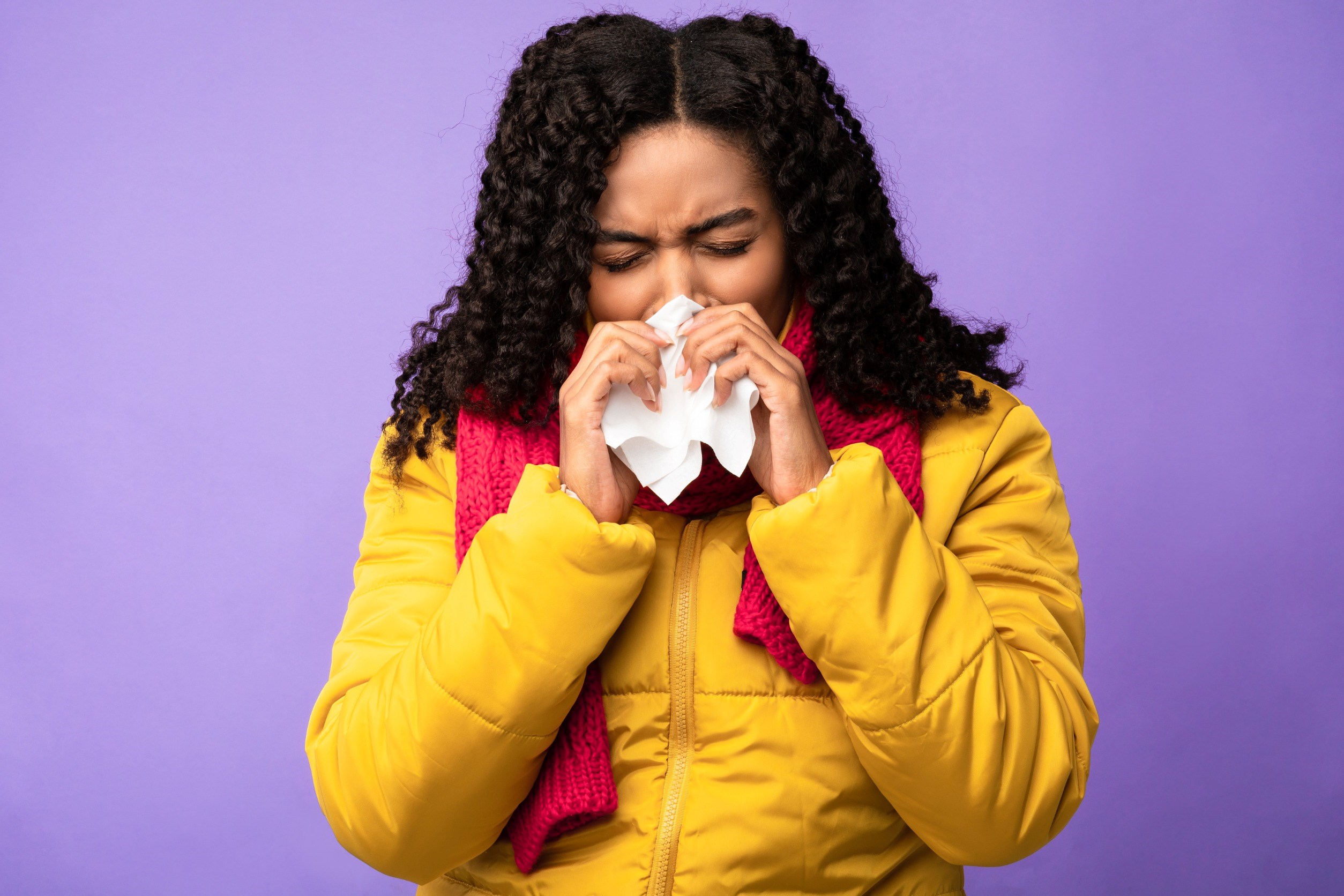Cold, Flu, COVID, or Allergies: Know the Difference
November 17, 2022

You have a stuffy nose, sore throat, and headache… But are you actually sick? Or do you just have allergies? The common cold, influenza, COVID-19, and allergies share many common symptoms, and it's difficult to tell them apart.
In this article, we walk through each of these four conditions, describing their unique symptoms and treatment plan.
The Common Cold
Like COVID-19 and influenza, the common cold is caused by a virus. Although they come from different viruses, all three illnesses are contagious, spreading via close contact with affected individuals or contaminated objects.
Cold symptoms are much milder than those of the flu or COVID-19. Typical cold symptoms include…
- Coughing
- Sneezing
- Sore throat
- Runny nose
- Congestion
Sometimes, a cold can cause muscle aches and weakness, tiredness, fever, loss of taste or smell, and – on rare occasions – headaches. Vomiting and diarrhea are never symptoms of a cold.
Cold symptoms usually appear between 1 and 3 days after exposure to a strain of rhinovirus (while COVID-19 can show up as much as 14 days after exposure to the SARS-CoV-2 virus).
Although there is no real “cure” for the common cold, it is easy to treat. Some rest, plenty of fluids, over-the-counter pain relievers and cold medications, and a little time are all you need to recuperate from a cold. And you can expect your cold symptoms to disappear on their own within a matter of 3 to 10 days.
The Flu
The flu (or influenza) displays symptoms often more severe than those of the common cold. Caused by influenza A and B viruses, the flu exhibits the following symptoms:
- Headache
- Coughing
- Muscle aches and weakness
- Tiredness
- Sore throat
- Runny nose
- Congestion
- Fever
- Shortness of breath
Influenza can occasionally cause nausea, vomiting, or diarrhea – especially in children. However, those symptoms are less common. In rare instances, someone may experience a loss of taste or smell with influenza – a sign much more commonly associated with the COVID-19 virus.
Struggling to tell the difference between the flu and a cold? Cold symptoms are much milder than flu symptoms, and people with the flu are less likely to have a runny or stuffy nose than those with a common cold.
Much like the common cold, flu symptoms appear within 1 to 4 days following exposure, while COVID-19 symptoms can take much longer to develop.
You can often remedy a flu with the same at-home treatment used for a common cold, but depending on the severity of your symptoms and your unique health risk, your healthcare provider may prescribe you an antiviral medication. An annual flu vaccine can also help reduce your risk of contracting the flu.
COVID-19
Like the flu and a common cold, the COVID-19 virus is contagious. Unfortunately, it can be very challenging to differentiate between COVID-19 and influenza, as people who’ve contracted COVID-19 can exhibit all the symptoms listed above for the flu.
But unlike the flu, COVID-19 usually includes…
- A drier cough
- And loss of taste and/or smell
And unlike the common cold, COVID-19 can occasionally cause vomiting and diarrhea.
Plus, COVID-19 can cause much more serious symptoms and reactions than the common cold, flu, or allergies typically cause. The best way to determine whether you have the COVID-19 virus is to take an at-home COVID-19 test.
If you are showing symptoms of the COVID-19 virus, contact your healthcare provider for medical advice as soon as possible.
Are you a patient of Mount Olive Family Medicine Center? Call us at 919-658-4954.
Allergies
Unlike the other three conditions, seasonal allergies are not contagious and typically only produce a few distinct symptoms, including…
- Itchy nose, eyes, mouth, or inner ear
- Sneezing
- Runny nose
- Congestion
Other symptoms that can surface with seasonal allergies include a wet cough, tiredness, pink eye (conjunctivitis), and loss of taste or smell. Allergies will rarely produce headaches or sore throats and never cause diarrhea, vomiting, fever, or muscle aches.
Seasonal allergies can be treated with decongestants, nasal sprays, over-the-counter or prescription medications, and general avoidance of allergy sources. If you are experiencing more severe allergic reactions, please seek medical attention as soon as possible.
Mount Olive Family Medicine Center
Think you may have one of these conditions?Schedule a consultation with your MOFMC primary care provider or visit the Mount Olive Family Medicine Walk-In Clinic with more serious concerns. No appointment is necessary!
Have more questions? Call us at 919-658-4954.
